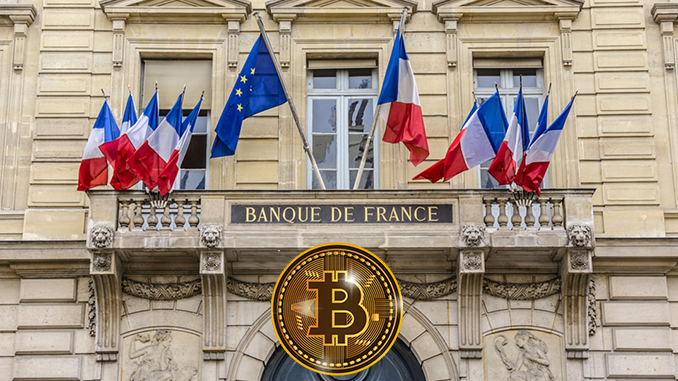
The French central bank is pressing ahead with its plans to try out a state-supported digital currency (E-Euro) before the end of 2020. The technological basis is to be organized by external service providers, as a tender has been announced.
Only a year ago, hardly anyone would have expected the dynamic development of state-supported digital currencies. But then, in June 2019, Facebook made its plans for its own stablecoin called Libra public and the central bankers understood: Libra has the potential to threaten our currency sovereignty. After a brief phase of defensive reactions, more and more central banks are now deciding to develop their own alternative. France had already announced in December 2019 that it wanted to test an e-euro. Now the abstract plan is becoming reality, as the Banque de France has launched a tender to put the project into practice.
Background on France’s central bank digital currency (CBDC)
In its letter, the French central bank first defines three uses for the euro to be created. This should be able to serve this purpose:
- to purchase listed and over-the-counter financial instruments
- to be exchanged for digital currencies of other central banks
- and to be used for purchasing crypto currencies and other digital investments.
Large sums of money in particular are targeted. The central bank digital currency (CBDC) will not be used by citizens in their daily lives for the time being, the test programme is aimed at participants in the financial markets.
The Banque de France intends to have the technological basis for its CBDC developed by external companies, research institutes or similar institutions. It is therefore calling on applicants to take part in the call for proposals. The prerequisites are a registered office in the EU or in countries associated with the EU and proven expertise in crypto-currencies and block chains. The timetable is tight: Questions can still be asked until April 20, and applications must be submitted by May 15. In June, selected applicants will be examined in interviews. The date set for the decision on who can participate in the E-Euro is 10 July, and the contracts should be ready for signature on 13 July.
The Paris-based central bank does not make any concrete specifications regarding the technology that is being sought. Although the system is to operate automatically, it remains explicitly open whether it will use a real, decentralised block chain or a block chain-like solution such as IOTA. It is also interesting to note that there should be no remuneration for participation in the project, even travel expenses must be paid by the external companies themselves. The project will be located in the premises of the Banque de France under the leadership of the Innovation Office.
Will Binance, IOTA and other major players participate in the Paris experiment?
Anyone who takes a closer look at the 14-page invitation to tender will quickly understand that established projects and companies from the crypto sector would probably have a good chance of being considered by the French central bank in its test run for the euro. Binance, for example, already began last summer to create a block chain system for stablecoins under the name “Venus”. Or IOTA, for example, which is based in Berlin, as its free ecosystem is virtually predestined for the task from Paris. Hedera Hashgraph, a project of major industry, might also be interested in the French offer. Because even if there is no payment for the work, the participation should be helpful for the image and future orders. The Banque de France wants to involve up to ten external cooperation partners.
Compared to Germany, France is initially at a loss with this initiative; in this country, the central bank and politicians are still arguing about the necessity and sense of an E-Euro. But a glance at the globe shows that the euro is still in the making: Sweden is already testing the E-crown, South Korea is in the starting blocks, China is sending out more and more signals that a CBDC will soon be launched – the list is growing rapidly.
These are encouraging signs for investors. Experts are unanimously expecting CBDCs to give the crypto industry a tailwind, whether through legal framework conditions or greater acceptance of crypto currencies among the population.
Leave a Reply